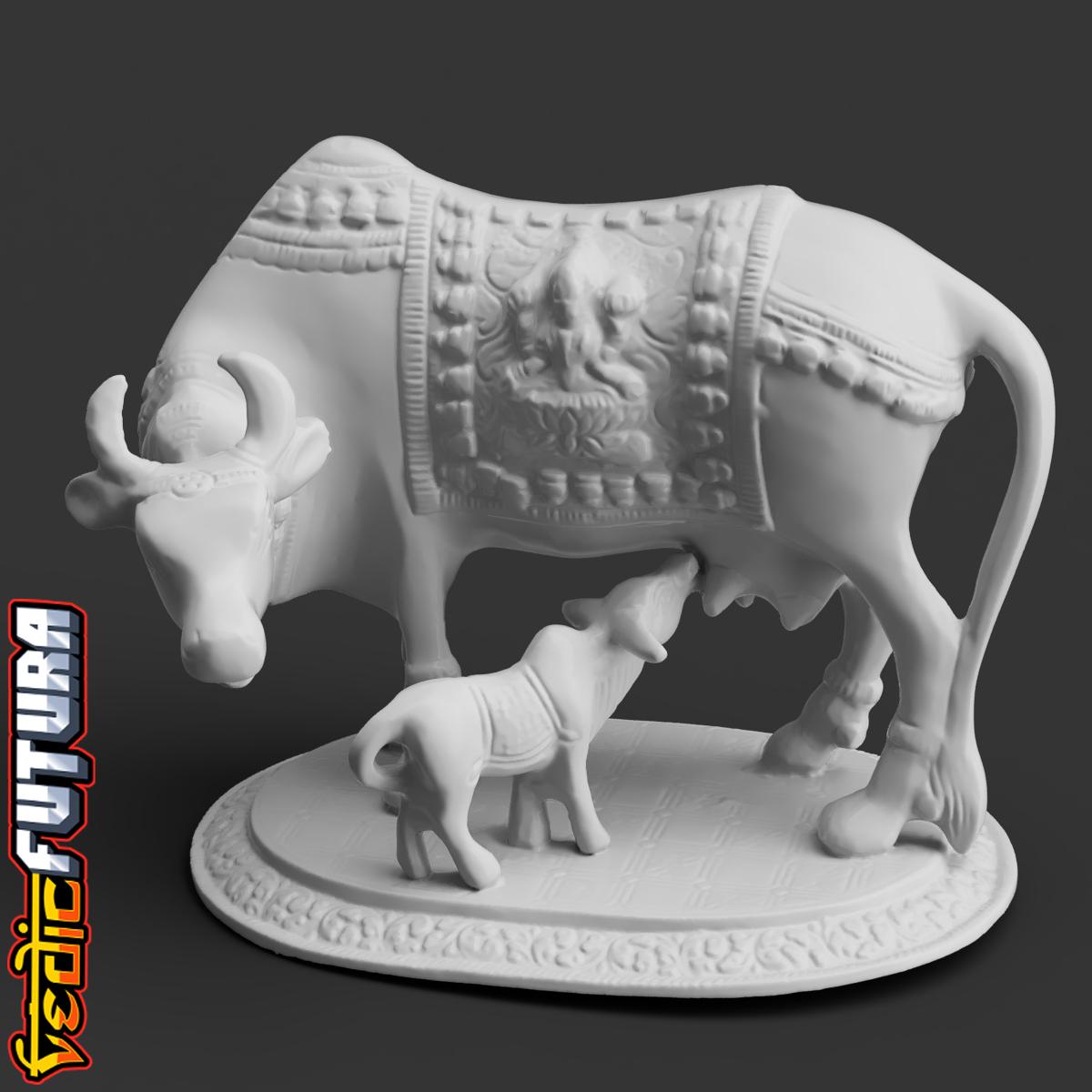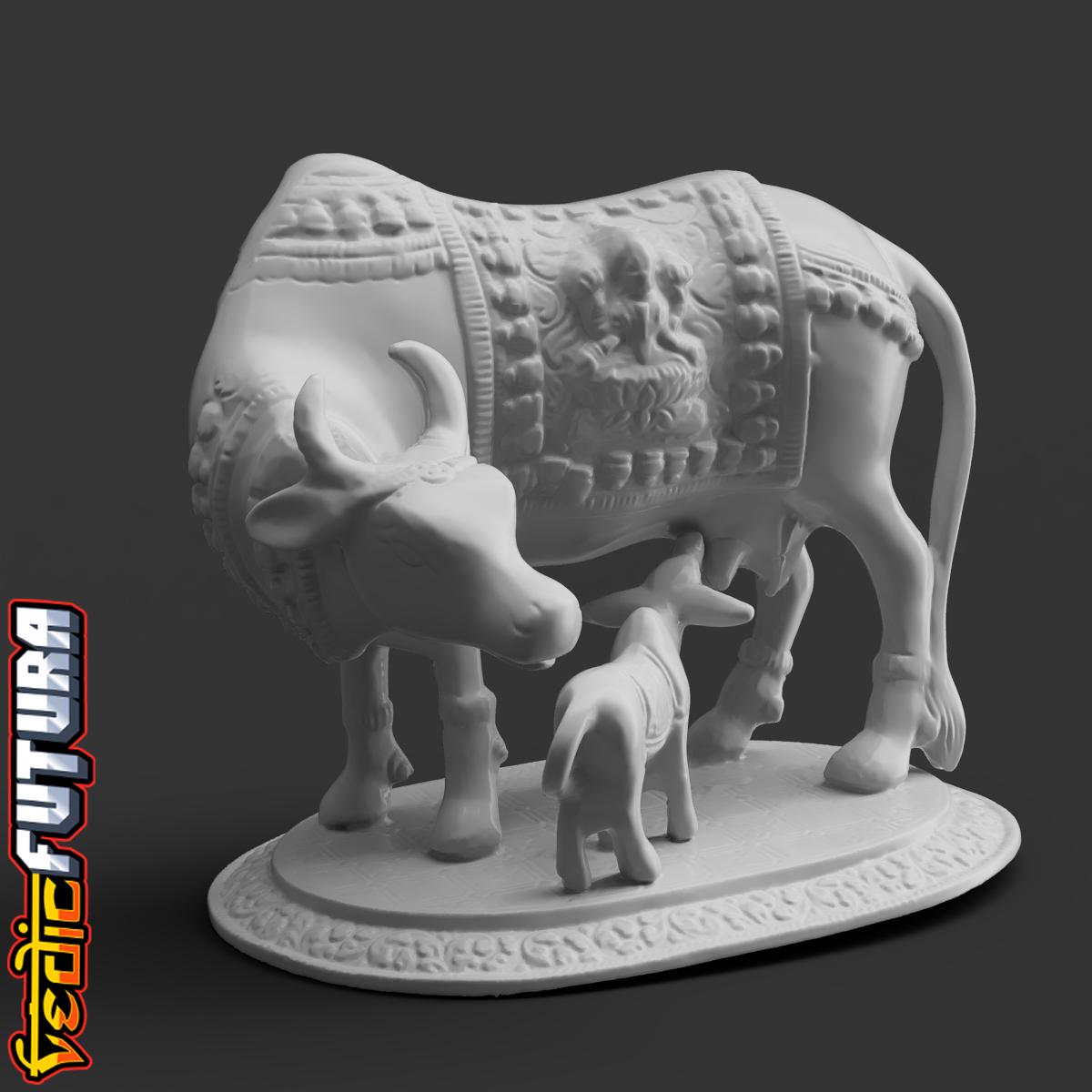Model originally uploaded to Thingiverse at https://www.thingiverse.com/thing:4613879.
A classic sculpture of a decorated cow and her calf. This imagery is found across most households in India. To the Hindu, the cow symbolizes all other creatures. The cow is a symbol of the Earth, the nourisher, the ever-giving, undemanding provider. The cow represents life and the sustenance of life. The cow is so generous, taking nothing but water, grass and grain. It gives more than it takes, as does the liberated soul give of his spiritual knowledge. The cow is considered a symbol of grace and abundance in Hindu culture. Veneration of the cow instils in Hindus the virtues of gentleness, receptivity and connectedness with nature. In India, more than 3,000 institutions called 'Gaushalas', maintained by charitable trusts, care for old and infirm cows. And while many Hindus are not vegetarians, most respect the still widely held code of abstaining from eating beef. The origin of the veneration of the cow can be traced to the Vedic period (2nd millennium–7th century BCE). The Indo-European peoples who entered India in the 2nd millennium BCE were pastoralists; cattle had major economic significance that was reflected in their religion. Though cattle were sacrificed and their flesh eaten in ancient India, the slaughter of milk-producing cows was increasingly prohibited. The degree of veneration afforded the cow is indicated by the use in rites of healing, purification, and penance of the 'panchagavya', the five products of the cow—milk, curd, butter, urine, and dung. Many cows in India today are decorated for festivals, celebrations and feast days.
🔥 Support VedicFutura ! 🔥 🌏 Check Out Our Awesome Blog and Website! ❗️ For Rights To Sell 3D Prints of VedicFutura Original Models Please Subscribe
ॐ









